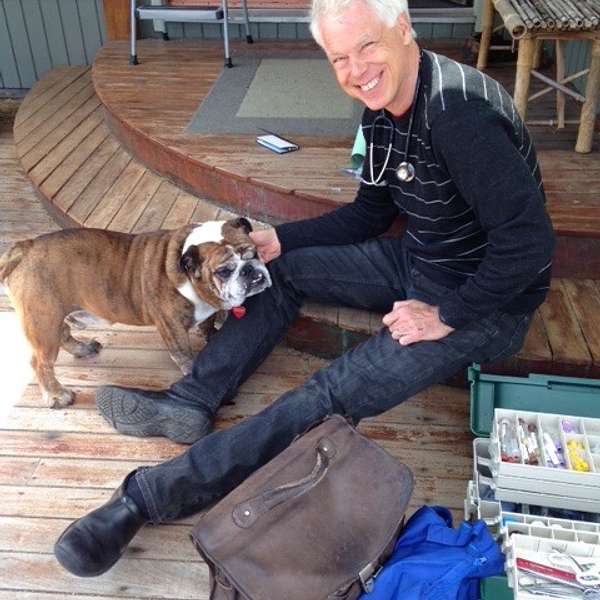
The Longing Lab
Do you ever find yourself so fixated on longing that you can’t enjoy the present? Longing for a lover, an exotic destination, a lost loved one, or a past time in your life? The Longing Lab takes a deeper look at the science of longing and the culture that drives us to long for what we don’t have. You can expect insightful conversations with individuals uniquely qualified to talk about longing. Host, Amanda McCracken, has written or spoken about her own addiction to longing in national publications like the New York Times, Washington Post, & the BBC. The goal of the Longing Lab is to inspire individuals to make positive changes in their lives. Look for her book, When Longing Becomes Your Lover (Hachette), in February 2026!
The Longing Lab
Veterinarian Bob Irmiger on deciding to euthanize a pet & how longing impacts this decision
Episode 6: Veterinarian Bob Irmiger talks about mourning a sick pet before they're even gone, the agonizing decision to euthanize a pet, the process of euthanasia, and how you know when it’s time to let go.
Dr. Bob Irmiger intimately knows the longing pet owners experience before and after euthanizing a loved one. I know from personal experience. Last May, Dr. Bob came to our home to help us release our Shih Tzu's spirit from her ailing body. For over 40 years, Dr. Bob has been caring for pets throughout their life spans. After graduating with honors from Michigan State University’s College of Veterinary Medicine, he accepted an intern position in small animal medicine and surgery at the University of Illinois. Upon completion of his internship, Dr. Irmiger moved to Boulder, Colorado in 1982. He has practiced in the Denver/Boulder area for 40 years. He is currently semi-retired and operating a house-call service. Irmiger has been married for 44 years to his wife, Sally Irmiger. Together they have two children, three grandchildren, two border collies and two shelter dogs.
In this episode, we talked about…
*Worrying you’ve decided to euthanize your pet too soon or too late
*The insensitive things friends unintentionally say
*How you know when it’s time to say goodbye
*How some dogs will hide their pain to hang on longer
*The process of euthanizing a pet and the body’s natural responses
*How sometimes people just need to be given permission to let go
*Dogs’ spirits leaving their bodies prior to medically passing
*How longing can impact your decision to keep your pet alive longer than, perhaps, you should
*Why you shouldn’t worry about making your vet comfortable during euthanasia
*How losing a pet can be more traumatic than losing a parent or spouse
*Advice for euthanizing a pet with kids around
*Resources for dealing with the grief of losing a pet
Quotes:
“I’ve had people six months or even a year later check in to see if they’d made the right decision…In most cases, they aren’t doing it too soon.”
“Some dogs are worn out. Those are the ones that are difficult to know if it’s time.”
“Losing the cat was more difficult than losing her husband. She had time to adjust to her husband dying of cancer… the cat’s death was sudden.”
“Twenty percent of people call and say they aren’t ready after they’ve made an appt for euthanasia and then they apologize for bothering me. Don’t worry about me.”
“I have had people who haven’t been able to pet their dog in weeks because the pet has been in so much pain. With the sedative they’re able to pet them. So, people get time to be with their pet.”
“I am more likely to wait too long than any of my clients I take care of. The day before I had to treat her [his own dog] with medication, she was hiding from me because she was sick of me trying to keep her alive.”
“Most vets get kinda stupid when it’s their own pet. It’s easy to give people advice when it’s not your pet.”
“I’ve learned a lot from hospice nurses. In vet school we weren’t taught how to put a pet to sleep—in terms of how to help people with the loss.”
Resources: https://vet.osu.edu/vmc/companion/our-services/honoring-bond-support-resources-pet-owners
Let’s connect: www.amandajmccracken.com